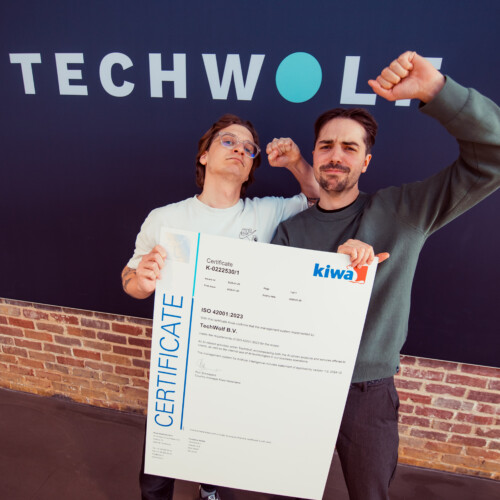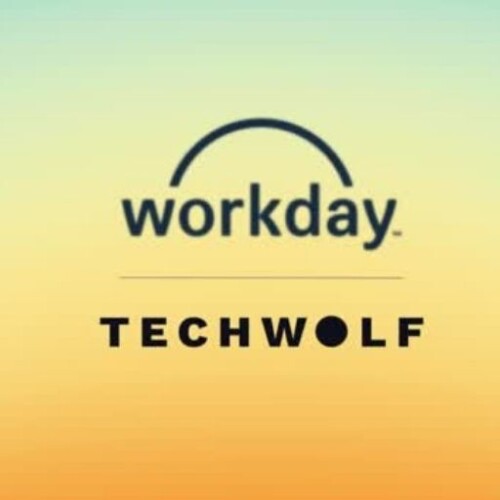Bridging the Skill Gap with Strategic Workforce Planning
How Telenet strives to gather all the pieces together to fine-tune the future talent puzzle.
This article was originally published in Dutch on hrmagazine.be

What skills will your company need in two to ten years? In a rapidly evolving world, today's skills are not the same as tomorrow’s. With TechWolf’s support, Telenet strives to gather all of the jigsaw pieces together to fine-tune the future talent puzzle. Because employing staff for the long-term pays off.
Who is Telenet?
Telenet is one of Belgium’s largest telecommunication providers and specialises in the supply of broadband internet, fixed and mobile telephony services and cable television. They are headquartered in Mechelen and employ over 3.500 full-time employees.
"The time has come to set up an HR data architecture that provides a complete overview of our workforce," said Kris Legroe, Director of Employee Services at Telenet. "Because we want to underpin our long-term strategic plans with predictive scenarios and the corresponding skills."
Notable: Telenet identifies the skills of its own staff and some of its external staff, namely, temps, contractors, and consultants working on strategic projects with the intent of increasing their potential agility. "At a macro level, we were not able to see a complete overview of all of our data. But you can create a complete overview of available skills by combining different data sources." Telenet links their HR knowledge with financial data, allowing them to leverage a truly holistic workforce synergy.
Kris Legroe: "So far, we have linked up the necessary data sources, which we evaluate to gain insights. The next step is to develop a predictive model in the second half of this year. This will allow us to model the profiles and skills needed for any future business scenario, for instance, the roll-out of 5G."
AI never sleeps
"To implement strategic workforce planning, you need to know the capabilities within your organisation," said Andreas De Neve, CEO of TechWolf. Telecommunications companies like Telenet are in a transition phase. They are evolving into technology companies. Their staff remain on board and grow with them. How do you transition to the new desired situation? "To keep people permanently employable, you need to collect data that is informative about them, such as education, achievements, previous jobs, interests, and networks."
This is how TechWolf's technology creates a global overview of the skills Telenet has within its ranks. Zooming in on teams and individuals also works. This provides valuable insights, which Telenet translates into actions. Among other things, they introduce and offer relevant content to groups of employees that could/should boost their knowledge in a specific domain. Artificial intelligence never sleeps. It collects and analyses data on staff continuously and detects sensitive trends.
The skill gap
In addition to the HR data architecture, staff growth is the next meaningful driver for Telenet. "Because building a predictive model is not only possible with existing talent, you also need to develop it," said Vicky Van Acker, Product Owner Talent & Leadership at Telenet. "We’re using TechWolf's smart technology to build a dashboard that will allow us to predict a surplus or shortage of skills. Once that knowledge is present, we proactively start a dialogue with staff. We encourage them to develop skills or look for alternative jobs or projects."
"To implement
strategic workforce planning,
you need to know the capabilities within your organisation"
- Andreas De Neve
A week of programming
The right person in the right place. Now and in the future with the help of technology. "This project is successful when a skill gap in the organisation is eliminated in advance," said Van Acker. She used a business case to illustrate the implementation of an application: "Once it’s completed, a quarter of the project staff will not be needed. Of course, we want to use them elsewhere. We’re looking for a platform to keep skill profiles visible and constantly up to date so that staff can search in a targeted way. Managers use these skill profiles to start a dialogue with them."
Employees should go beyond thinking in terms of jobs and vacancies. They should also consider projects or temporary assignments. "It's all about flexibility, for instance, going for a week of programming in Java." Telenet facilitates their horizontal or vertical career ambition. Staff engage in the narrative because they see the added value for their careers. Momentum is created for them to take ownership of their professional career path.
Maturity in leadership
An additional expected success is that Telenet will make decisions based more on data than intuitively. Kris Legroe: "Intrinsically, we have enough data, but there is still too little potential, for instance, to accurately determine revenue targets. Thanks to the data, we will help steer people to the environment where they can contribute most."
Vicky Van Acker sees the interconnectedness with the leadership programme. "The level of maturity in leadership and career discussions increases over time. You have a different type of dialogue when you know that someone's skills will be obsolete in a few years' time even though everything seems to be going well at the moment." So, dialogue between manager and employee remains crucial, but technology provides additional discussion topics that make it easier to get to the essence of a conversation.
HR data mindset
The power of data has not yet been utilised by HR everywhere. Telenet also dares to take a critical look at itself. Kris Legroe: "The data is there, but the data mindset is still not present. The focus on correct data must be intensified." He cited recruitment processes as an example. Accurate data offers considerable added value in terms of the quality of a talent pool. This makes the search for suitable candidates much more efficient. You do not have to start from scratch for every new job vacancy. "If we can fill a skill gap without opening a new job vacancy then we’ve done our job properly."
Luckily, there is a wealth of data available within HR. For instance, engagement surveys or previous learning and development measures. By collecting and analysing more data points, you can more accurately determine which initiatives have an impact on staff engagement or that increase the return on training. A data-driven department like marketing also works this way.
Not a waterfall
In the organisation, Telenet is not following the traditional top-down waterfall model when translating the data into insights and then converting them into actions. Legroe: "We start where it’s possible. We set up small use cases to learn from them. We identify future skill gaps and at the same time the staff who will eventually become available and re-trainable. Workshops refine this talent question. We supplement the results with data from TechWolf's artificial intelligence."
Andreas De Neve described this: "The intelligent algorithm recognises the connection between the desired skill, such as coaching, and tasks that someone performs, training courses taken, articles read, or someone's profile on LinkedIn. The more data points, the smarter the algorithm." Staff then test it against reality, starting with the employee, their manager, or an HR professional.
Getting to the essence
Will artificial intelligence diminish HR’s utility? Vicky Van Acker provided nuance: "The HR role will change only slightly, but the number of questions will decrease. The questions will be about the essence. The manager and their team will act more autonomously thanks to the reinforced material available for their discussions. If they need an extra sounding board, they turn to their People Partner. With predictive models, the greater and more qualitative the self-awareness, the more effective the development measures."
Available knowledge of skill needs leads to efficient learning moments. Traditional thinking about training is lacking. Technology provides automatic learning suggestions complemented by an in-depth qualitative discussion.
Look at the best in the world
It is all about keeping staff employable for the long term. To do so, we must continue to develop, preferably at Telenet or possibly elsewhere. "Every person you keep permanently employable is positive recruitment. And never underestimate the cost of recruitment," says De Neve.
Technology is an ally. "Bridging a skill gap is not that difficult, but knowing which skills you have today and will need tomorrow is a much bigger challenge," said Legroe. He recommends that senior managers pay close attention to companies that are world leaders in their markets: "What skills do they require in their job adverts?” and how to collect data you wouldn’t initially consider.
Three tips
- There are some tasks that technology can do better than people and others that are more suited to people than technology. Choose who does what the best. Mapping out a total workforce is the forte of intelligent machines. A qualitative career interview is exclusively intended for two people.
- A fool with a tool is still a fool. So, use technology in a targeted fashion to benefit HR's internal customer: staff and managers each with their own needs.
- For instance, take a concrete problem in your business and see how you can solve it with data. There is more data available than you might think. Take small steps and dare to get going.




